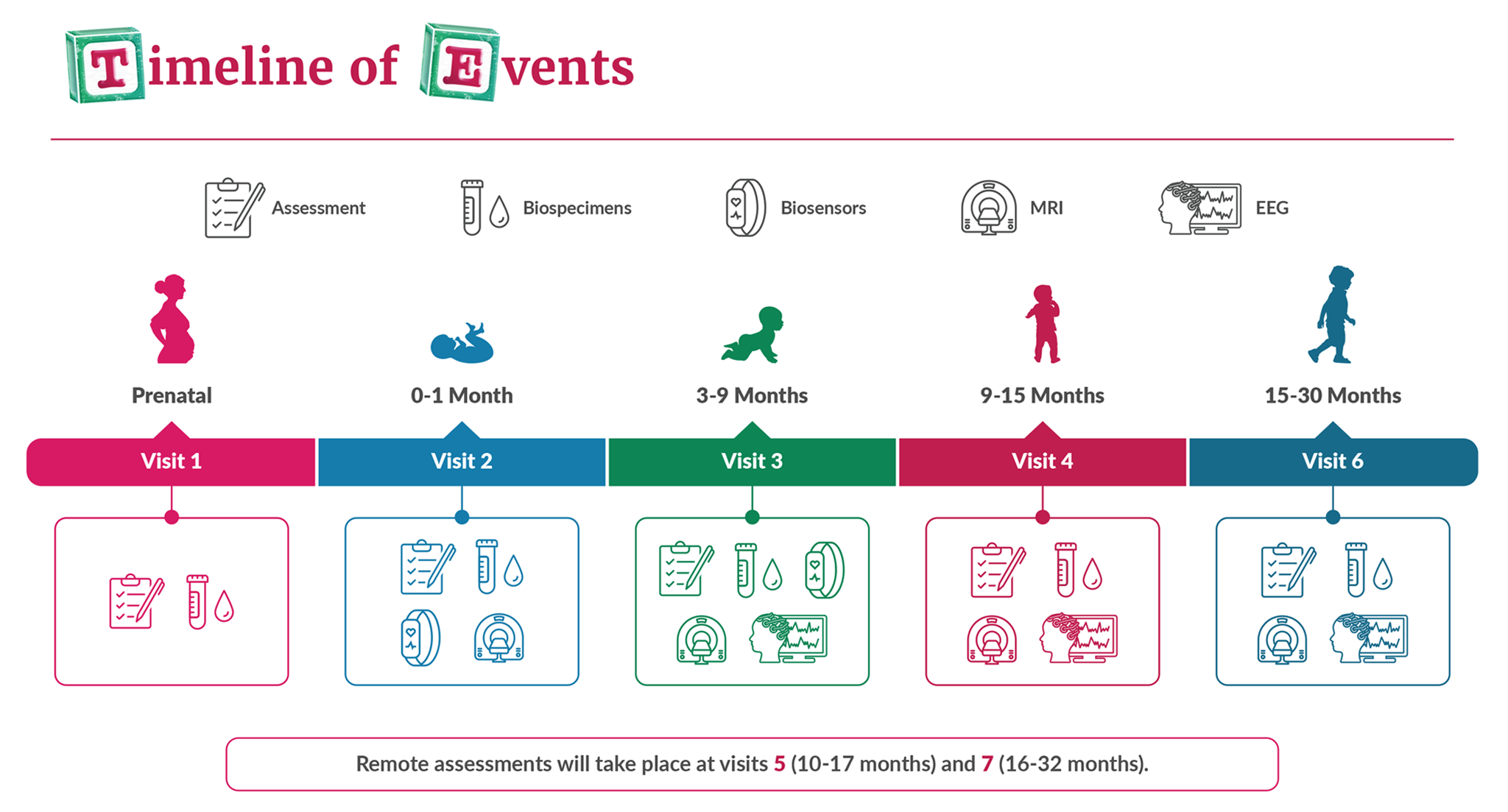
For Scientists
Review our study objectives, design, protocols and more
STUDY OBJECTIVES
The HBCD Study, the largest longitudinal study of early child development, will generate a unique data resource from a large cohort of participants across the U.S. A major goal of the HBCD Study is to make this valuable data resource available for the scientific community for analysis and generation of scientific hypotheses for further study. The HBCD Study will utilize an open science model to release curated, anonymized data annually. HBCD 1.0 Data Release is now available on the NIH Brain Development Cohorts (NBCD) Data Hub, and can be accessed here: https://www.nbdc-datahub.org/.
STUDY DESIGN
The HBCD Research Consortium consists of an administrative core (HCAC), a data coordinating center (HDCC), and 27 recruitment sites across the United States. The HCAC, HDCC, and HBCD Consortium Workgroups have established standardized and harmonized assessments of neurocognition, physical and mental health, social and emotional functions, and culture and environment. They also have established multimodal structural and functional brain imaging and bioassays.


HBCD’s comprehensive protocol includes assessments of children’s physical, emotional, and cognitive development, plus surveys of parental health and well-being. The HBCD study features wearable biosensors to calculate infant heartbeat and movement, biospecimen collection for genetic and epigenetic analyses and measurements of environmental and substance-use exposures, and multimodal neuroimaging and EEG across neurodevelopment. These assessments are distributed across in-person and remote visits during an initial 5-year period. Visits are scheduled at variable intervals designed to capture developmental trajectories. We are anticipating extension for a second 5-year period.
BRAIN MEASUREMENT TOOLS
empty box
EEG
empty box
MRI
STUDY PROTOCOLS
Visit 1
Prenatal
Visit 2
0-1 Month
Visit 3
3-9 Months

WORKGROUPS AND COMMITTEES
The HBCD Consortium has established workgroups to guide the development and refinement of the study design, protocols, informatics and standard operating procedures to facilitate the implementation of the study. Comprised of HBCD investigators, collaborators and staff with domain expertise, each workgroup meets regularly to assess and address the relevant needs of the study in light of scientific and technological advancements.
The HBCD Consortium Committees are structured to have engagement in areas that require integration across the consortium.